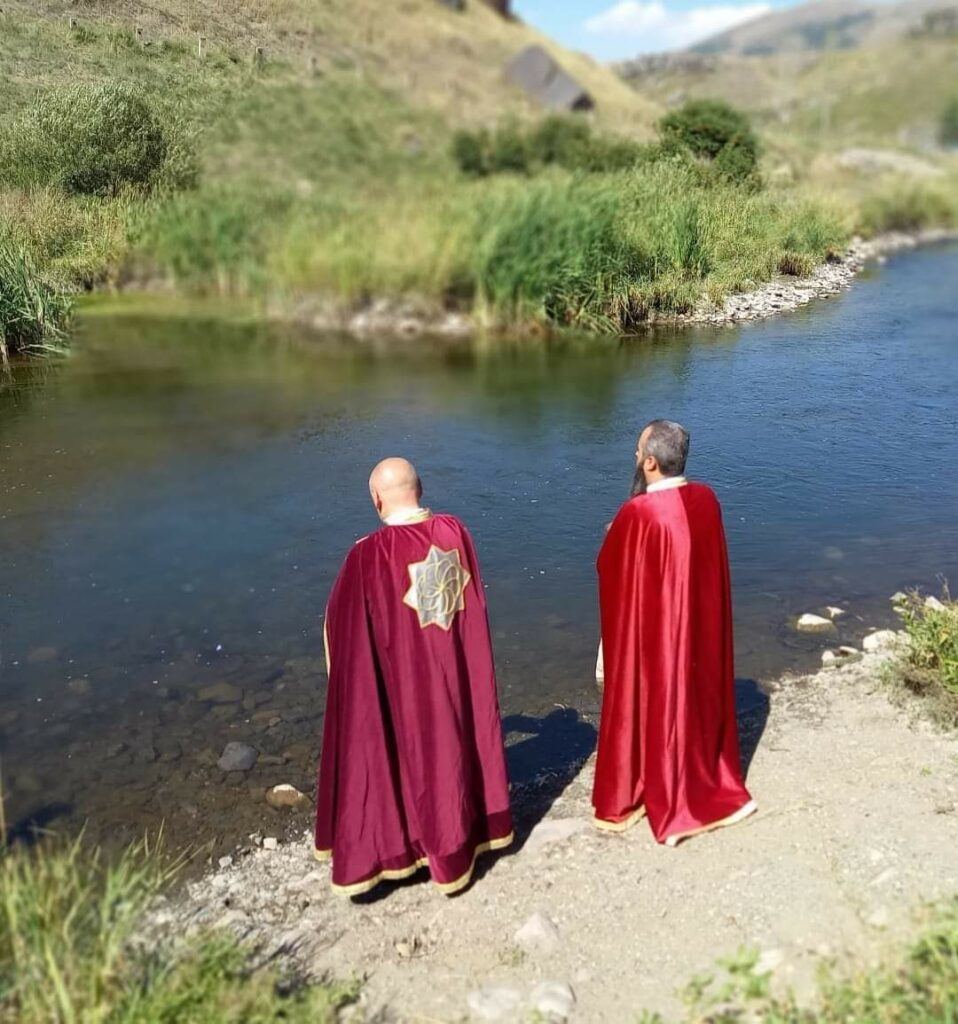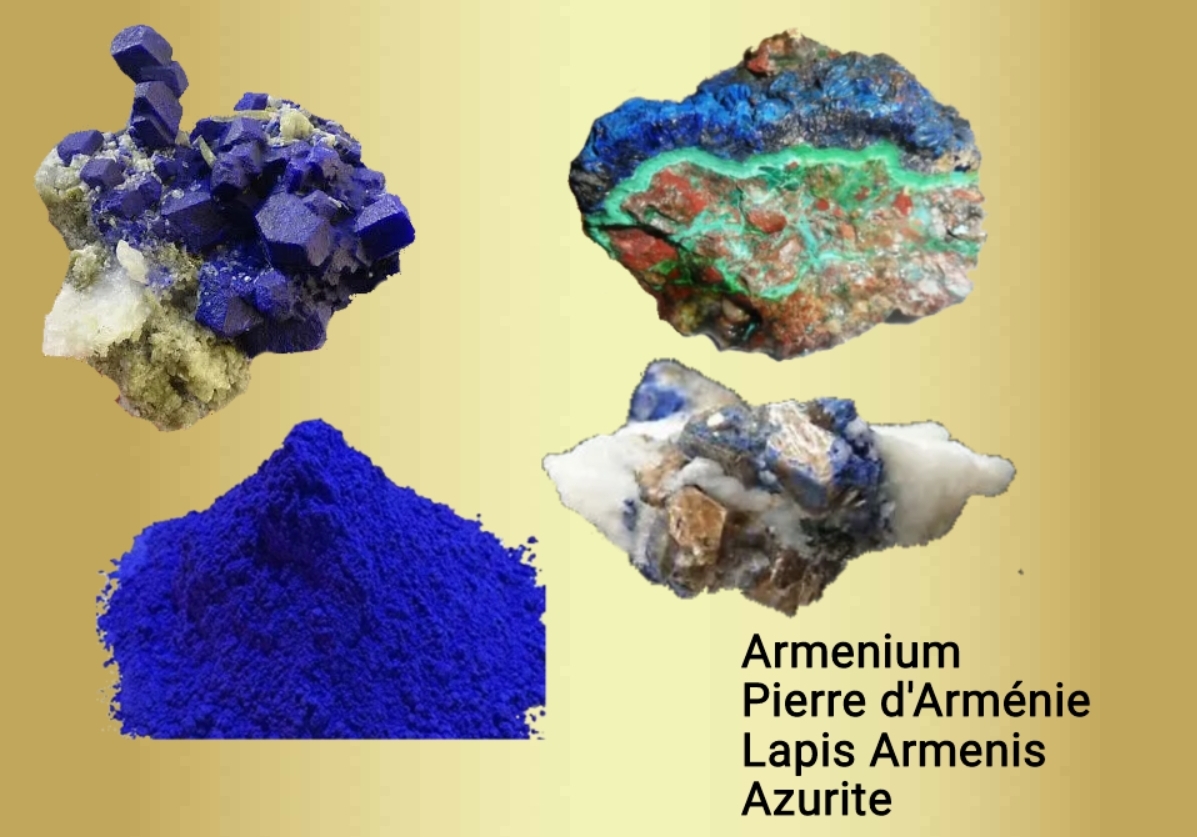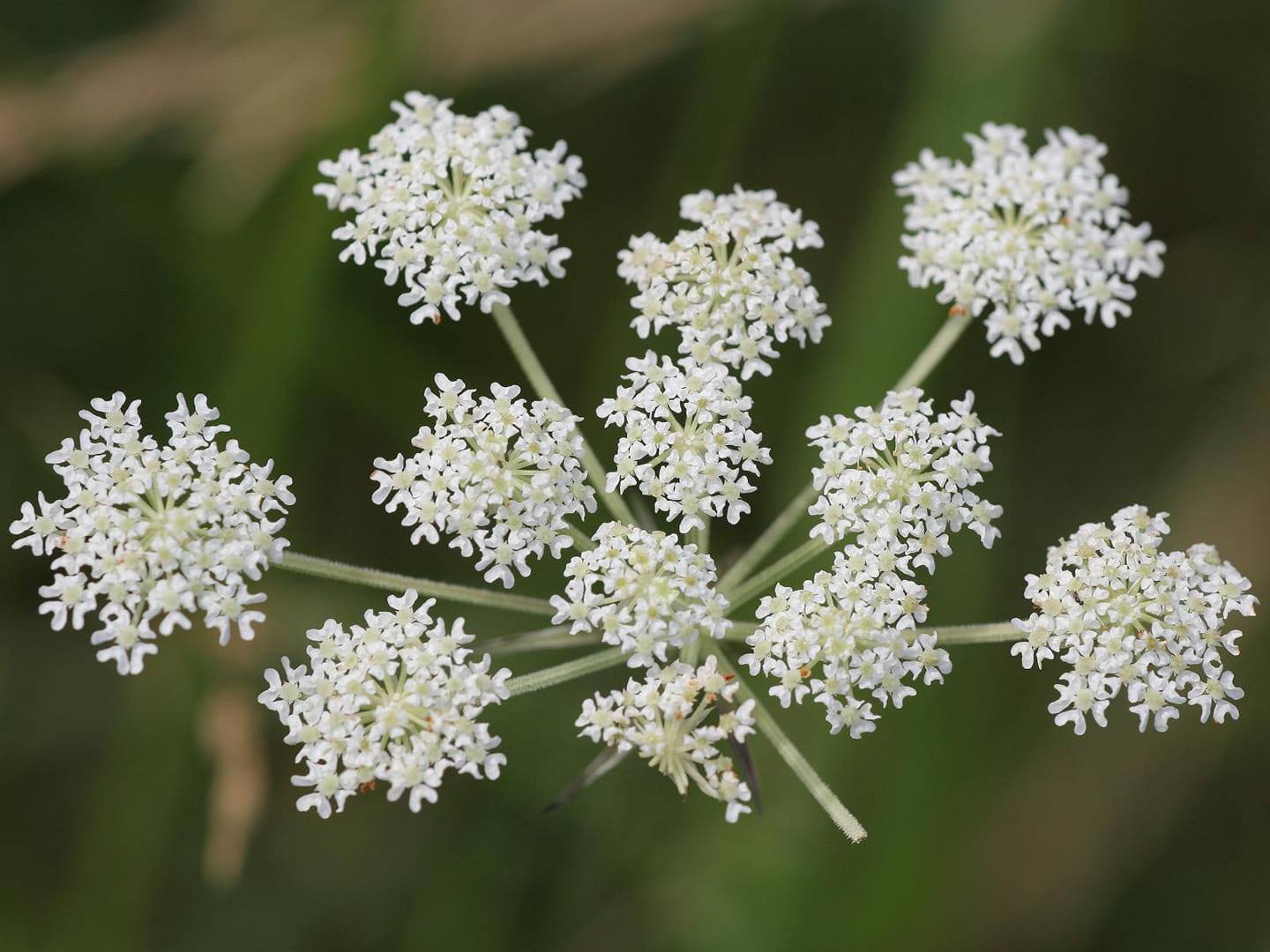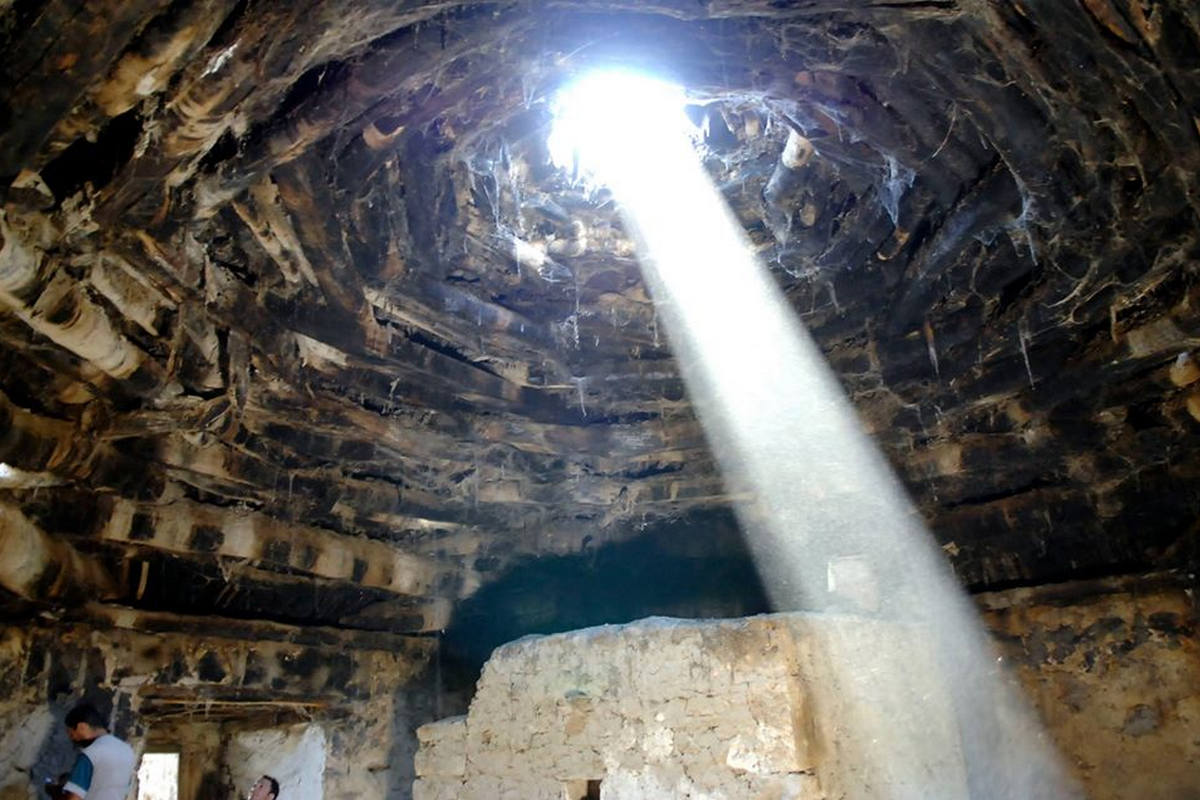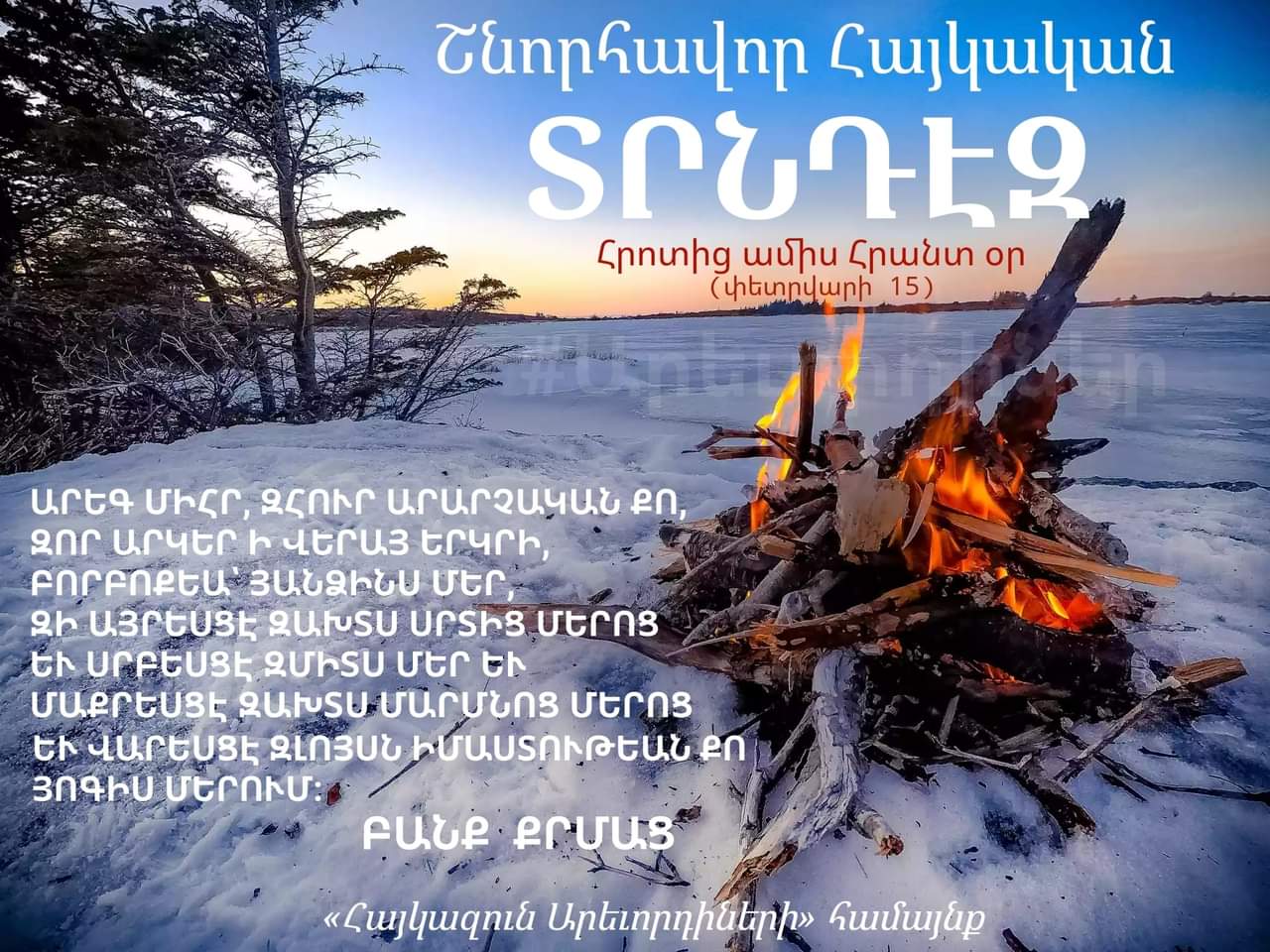“WITHOUT WATER, NO SEED CAN GERMINATE ON THE FACE OF THE EARTH…”
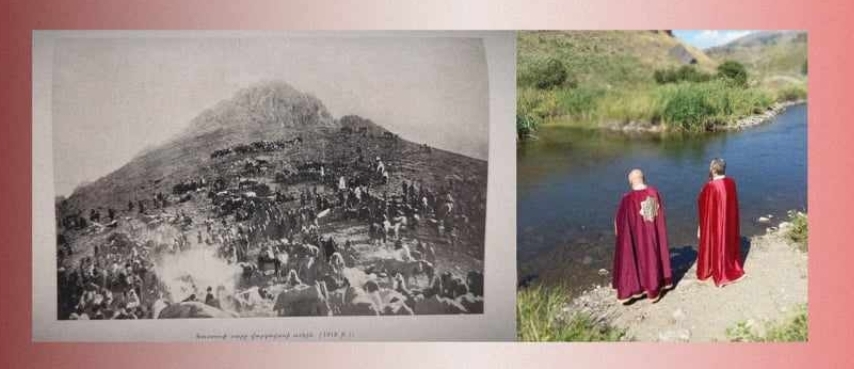
Across the entire Armenian Highlands, numerous ancient pilgrimage sites are scattered, where, since time immemorial, Armenians have gathered to continue the traditions of their ancestors, celebrating national holidays and rituals with special festivities.
The most beloved celebration was the feast of Vardavar. During the summer heat, pilgrims from various places—groups, families, and clans—would make their way to their sacred site, whether it was an ancient temple, mountain peak, cave complex, river, spring, or a majestic standing tree. There, they would praise Water, the gift of Nature—nourishing, cooling Rain—and also honor love and its patrons: the affectionate, rose-bearing goddess Astghik, and the brave, valorous Vahagn (as noted by the priests of the Haykian Brotherhood, Kurm Mihr Haykazuni and Kurm Harut Arakelyan).
The sacred sites remaining in Western Armenia are no longer standing. After the Armenian Genocide, pilgrimages to these once-crowded holy places ceased. However, the Vardavar festivities and other celebrations have been immortalized in the pages of writers from different times, in the memories of participants, and continue today in slightly altered forms on the small piece of land that remains of present-day Armenia…
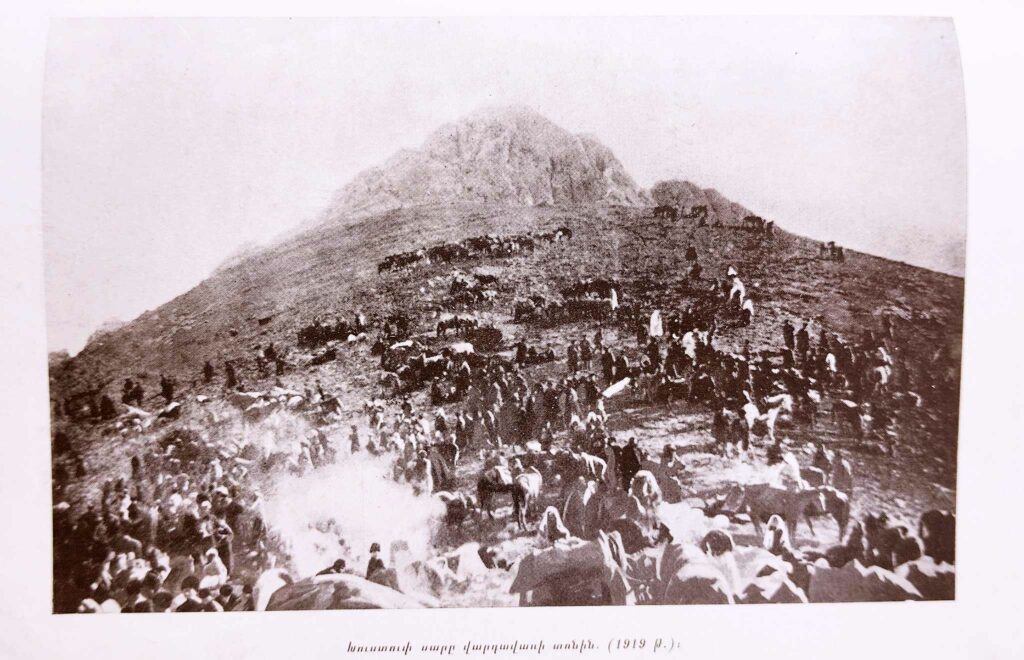
The Vardavar festival on the slopes of Khustup in 1919.
As a continuation of the festival of “New Harvest,” “New Fruit,” the Earth that ripens the crops and the Life-giving Water were also glorified.
Water…
The Water that enables fertility and growth, Life and existence itself—without which there is no growth, blossoming, development, or prosperity…

“…Remove the water, take away the moisture from every living thing, and it will immediately wither.
And withering is the consequence of death and obliteration.”
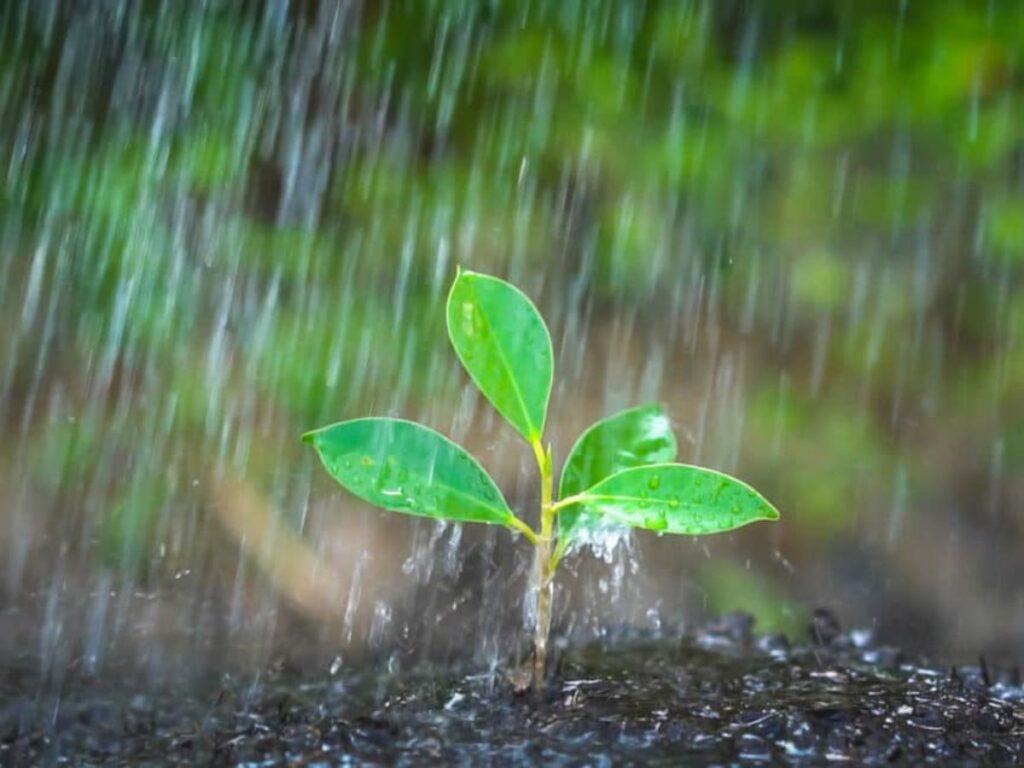
“Without water, not a single seed can be fertilized on the face of the earth,” writes Atrpet, and continues:
“…The gusans (minstrels) glorified Astghik’s love and tenderness through their songs—her image and beauty, her vitality and energy, which filled people with spirit and emotion, allowing them to lead joyful lives. Thanks to this feeling, people transformed the earth into a paradise, embracing and loving one another with the flames of love, entering a rose garden of happiness to spend days filled with joy and delight.
Without the abundant love and emotions bestowed by Astghik, they found life sad and unbearable. Without the pleasures she granted, all the scenes of nature would turn bleak and dark. Just as Astghik gave life and bright eyes, they attributed rosy cheeks, ivory chins, amber breasts, cypress-like stature, arched eyebrows, shining foreheads, beating hearts, and trembling muscles to Astghik’s grace.
Another group of singers, with their gusans and dancers, in turn began to sing of Anahit’s genius, her wisdom, and the gifts she brought to humanity—the beautiful arts with which humankind turned the desert into a paradise, adorning the valleys and mountain slopes with countless blessings and colorful flowers, even decorating the rocky cliffs.”

Some praised the hammer and the anvil, others extolled the axe and the saw, while some marveled at the cart and the carriage. Others admired the plow and the plowshare, the horse’s bridle and horseshoe, the bow and arrow, the ladders and the pulley, the painting and the sculpture, the harp and the flute. In short, all the arts and tools that humanity had gained through the ingenious wisdom granted by Anahit.
Each time the minstrels sang a verse, the dancers would repeat it, moving back and forth with enthusiasm, linked arm-in-arm, brimming with fervor. The gentle breeze caressed and invigorated the youthful faces, flushed with excitement, their hair and chests, while the sun’s bright rays reflected in their fiery eyes, golden hair, and smooth skin…
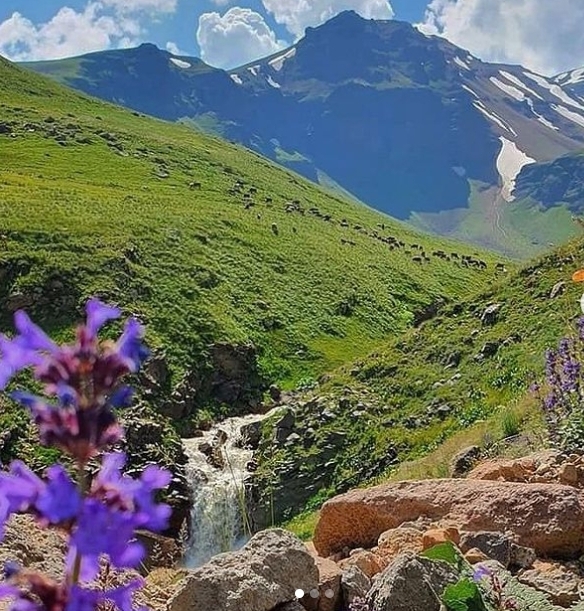
“…Before the offering had concluded, forty maidens clad in apricot-colored garments, dedicated to the radiant Astghik, descended gracefully from the hilltop. Their amber-like hair cascaded over their shoulders, their heads crowned with roses, and their bare necks and wrists adorned with strings of beads. They approached the musicians with delicate steps and began their song and dance.
The minstrels, surrounded by the maidens, sang numerous hymns dedicated to Vardeh. As they danced with increasing fervor, exchanging graceful movements, the sun had already ascended to the highest point in the sky, and the air grew so intense that pearls of sweat adorned the foreheads of both the minstrels and the dancers.
At this moment, groups of maidens and young men took jugs and pitchers, splashing water on their beloveds to cool and refresh them. They endlessly sprinkled water over one another, shouting, laughing, and running away, but no one could escape getting drenched.”
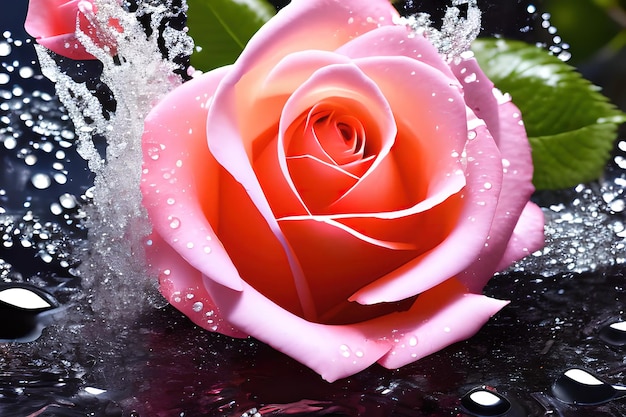
«It’s the Festival of Roses!», they shouted, spraying the cool water relentlessly from head to toe.
The singers, dancers, musicians, and the crowd continued their joy without changing positions until their clothes dried under the sun’s rays. The youth and teenagers endlessly carried water and poured it over the heads of the pilgrims, who, either exhausted or lost in thought, had withdrawn to the side.
— Today is the Festival of Roses, a day of laughter and dancing, — shouted the water-sprayers, leaping and jumping.
— Today is our protector’s festival, it’s Vardavar, we must only sing, dance, and laugh, not doze off and slumber.
— If only that water rained down from the heavens, — sighed the elderly in response, — we too would rejoice in spirit.
The teenagers drenched the pilgrims so much that, to escape the soaking, everyone joined the circle of dancers and began to sing and leap with them.
The dance lasted until the sun set. Though the last of the pilgrims sat on the green grass to dine, the songs, music, and dancing did not cease.
After playing the evening lament, the pilgrims lit great fires near their tents, around which, until midnight, they sang, played music, and listened to the stories of the bards, who passed down the tales they had heard from their ancestors to their grandchildren…
